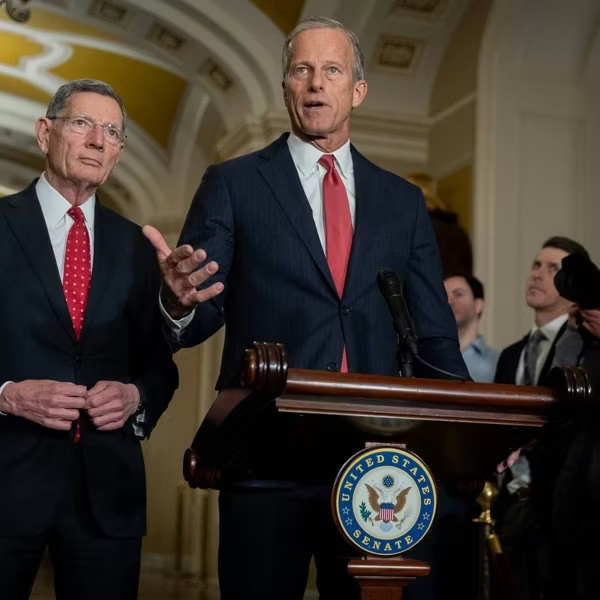This simple rule of thumb has rarely failed: When Democrats get confident, I get nervous. That's true, even when Republicans inflict disaster on the country - and potentially on themselves.
"This tax bill will be an anchor around the ankles of every Republican," says Sen. Chuck Schumer. "If they haven't learned it yet, they're going to learn it next November."
It must have been satisfying image for Schumer to conjure up: legions of Republicans dragged down to Davy Jones' locker, like a spectral corpse crew from The Pirates of the Caribbean. And it certainly should be true of the bill currently being finalized by Republicans.
After all, we're at a crossroads in American history. We are experiencing historic levels of inequality, where two families - the Waltons and the Koch brothers - own more wealth than 115 million people, or more than a third of the population. Over 40 million Americans live in poverty, more than 27 million are without health insurance, wages for most people have stagnated, and the middle class is dying.
This bill will make those problems much, much worse, and the ensuing disaster should offer Democrats a historic opportunity to win in 2018, and in 2020. But for that to happen, Democrats need to do something they've been reluctant to do so far. In the face of elitist piracy, they must become economic populists.
Two Thoughts at One Time
Take the debate that's been raging since Doug Jones his Alabama Senate seat. Did black voters win the seat for Jones, or did a shift in the white vote win the race? Two things can be true at once: It is entirely possible that a shift in white votes lifted Jones over the top - while, at the same time, the black vote was essential to Jones' win.
People sometimes confuse voter analyses, which are tactical in nature, with political values. There are certainly reasons to fear the conclusions that could be drawn once analysts start tracking changes in the white vote. The analysts' fear is this: If Democrats need to appeal to white voters, they may ignore other black and brown voters - or worse, will resort to conservative, if not overtly racist, pitches to woo whites.
That's a holdover from the divisive, Mark Penn-style Democratic strategizing of past years. But it ignores the fact that voters in all groups share some common economic and social concerns.
False Division
And yet, some people are intent on maintaining the false notion that class politics and racial politics are in conflict. That's misguided. And when Democrats try to base their appeal on one without considering the other, as Doug Jones sometimes did, the results aren't always pretty.
The Democratic Party should be deeply concerned about a recent Black Women's Roundtable/ESSENCE Magazine poll showing a dramatic 11-point slip in the number of African-American women who "felt the Democratic Party best represented their interest" over the past year. While support remains very high, this drop is deeply troubling. Is it borne of racial pain, economic discouragement, or some combination of the two?
Black voters continue to face the unique and ongoing trials laid out by our country's history of slavery and racism. But they also face the same economic woes as other working Americans. In fact, black Americans are worse off as a group on most economic and social measures. It's not racist to point that out, despite what some Democrats claim.
In fact, it may be racist to deny it.
Three Battles, One Goal
With this tax bill, the Republican Party has issued its legislative manifesto. It has declared its allegiance to the wealthiest and most powerful among us, and proclaimed its willingness to sacrifice everyone else on the flaming altar of unbridled greed. That's an opportunity for Democrats, but it's not a guarantee of victory.
For Democrats to win in 2018 and 2020, they'll need to do more than tie this bill around the Republicans' ankles and hope they sink. It's not enough to tell voters that the ideology of greed is a lie. They'll have to offer a more compelling vision based on egalitarian values, both social and economic, along with concrete proposals for turning that ideology into reality.
Without that vision, the tax bill will have raised only false hopes - and the Democratic Party will be just another sinking ship.




